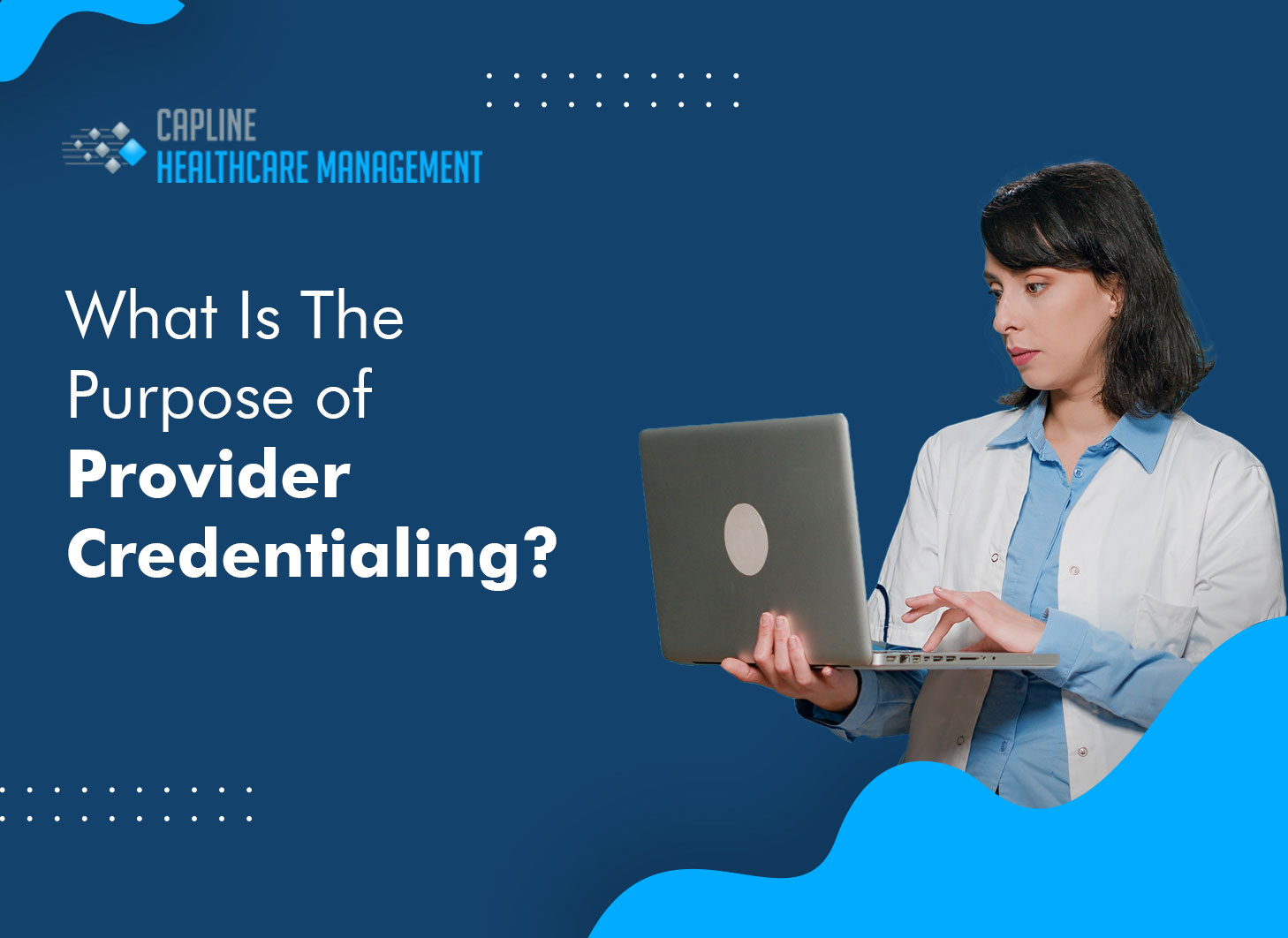What Is The Purpose of Provider Credentialing?
Provider credentialing plays an important role in the medical billing process. The importance of medical credentialing plays out in several significant ways. From preventing revenue loss to delivering quality healthcare and setting the best-practices culture in healthcare delivery.
Provider credentialing is a crucial process to validate a healthcare provider’s credentials such as education, work history, board licenses, malpractice history, and so on to ensure the provider is competent and eligible to provide healthcare.
In this blog, we will understand the significance and purpose of provider credentialing and how it can benefit your practice.
Why is Provider Credentialing Important for Healthcare Providers?
Here are seven reasons why provider credentialing is significant for healthcare providers:
- Patient Safety
Provider credentialing helps ensure that healthcare providers, such as physicians, nurses, and allied health professionals, have the required qualifications, skills, and experience to deliver safe and high-quality care to patients. By verifying the credentials of providers, healthcare organizations minimize the risk of incompetent or unqualified individuals providing care, ensuring patient safety.
- Improves Trust Among Patients
Trust plays a crucial role between you and your patients since they are likely to trust experienced professionals to take better care of them. If patients do not know their doctor’s qualifications, they may not gain complete trust in the health care given by doctors to them. Therefore, being credentialed creates confidence in patients and allows them to develop trust in their selected healthcare providers.
- Prevents Revenue Loss
Partnering with insurance providers becomes a mandate for healthcare providers to have more patient visits for treatment since most patients are covered under some healthcare insurance policy. Majorly, physicians and other healthcare professionals should produce a list of document verifications to insurance to be eligible for reimbursement expenses. If provider credentialing is not done properly, it can lead to the rejection of claims and patients’ bills, resulting in revenue loss.
- Improves the Reputation of Healthcare Practices
If a healthcare provider is credentialed, it definitely adds value to the practice. When patients search for healthcare professionals and look at certain aspects that satisfy them to come to the facility. Some patients may have insurance, and some may not. But having credentialing done, the respective physician can treat patients with or without insurance.
- Legal and Regulatory Compliance
Provider credentialing is a legal and regulatory requirement for healthcare organizations. Government agencies, licensing boards, and accrediting bodies establish standards that must be met to ensure the delivery of safe and ethical healthcare. By adhering to these regulations, healthcare organizations mitigate legal and financial risks.
- Insurance and Reimbursement
Insurance companies and payers often mandate provider credentialing to participate in their networks. Credentialing is necessary for providers to be eligible for reimbursement for the healthcare services they render. Without proper credentialing, healthcare providers may face challenges with billing insurance companies and receiving payment. This can significantly impact their revenue growth.
- Enhances the Quality of Care
Provider Credentialing plays a crucial role in maintaining and improving the overall quality of healthcare delivery. By verifying providers’ education, training, certifications, licensure, and professional history, healthcare organizations can ensure that only qualified individuals are allowed to practice within their facilities. This helps create a culture of quality and accountability, leading to better patient outcomes and satisfaction.
Conclusion
In the vast and complex world of healthcare, the well-being and safety of patients are paramount. To achieve this, healthcare organizations and insurance companies must undergo the provider credentialing process. This vital procedure ensures that healthcare providers possess the necessary qualifications, experience, and skills to deliver high-quality care. By ensuring that healthcare providers meet established standards, organizations can maintain trust with patients, regulatory bodies, and insurance companies while upholding the highest standards of care.
Capline Healthcare Management is a leading medical billing outsourcing company in the United States that offers impeccable provider credentialing services. If you are a healthcare provider who has not acquired credentialing yet, it’s time to avail of our services and get in the networks of top payors.



